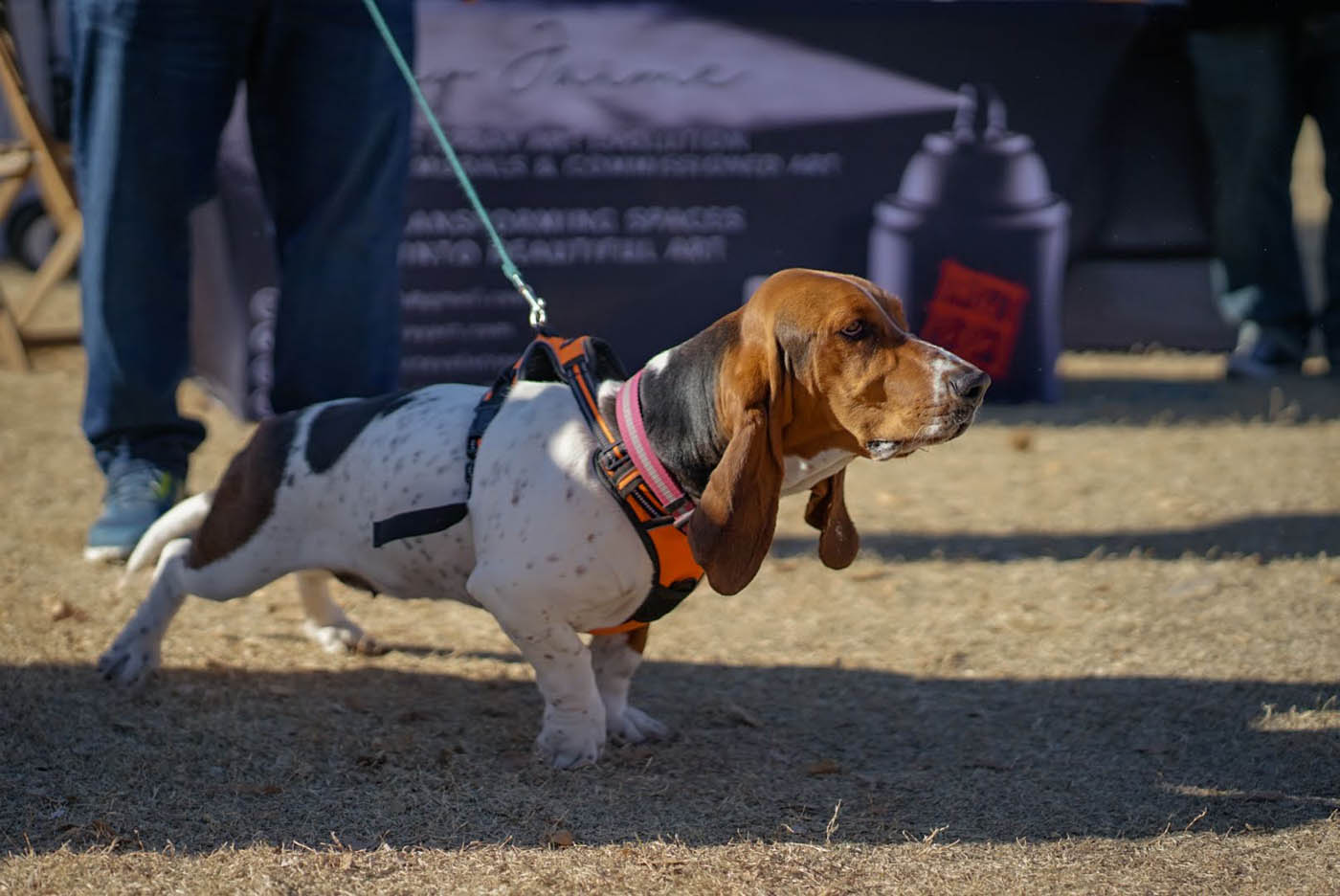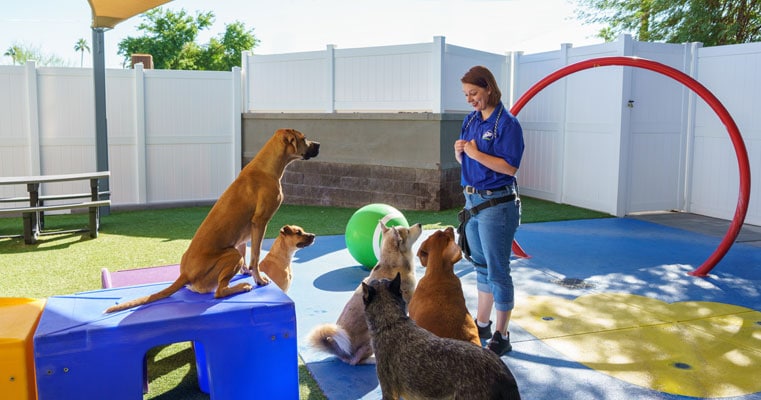Unlock Your Pet's Possible: Proven Pet Dog Training Techniques for Success
Effective pet training is a nuanced procedure that pivots on recognizing canine actions and utilizing medically backed techniques. By integrating positive reinforcement, developing clear commands, and prioritizing socializing, pet owners can cultivate a productive connection with their family pets.
Understanding Pet Behavior
Understanding pet dog actions is essential for reliable training and cultivating a positive connection in between canines and their proprietors. A thorough grasp of canine body language, vocalizations, and social communications is vital for recognizing their emotions and needs. Dogs connect mostly with non-verbal signs; for instance, a wagging tail may indicate enjoyment, while pinned ears can indicate anxiety or entry.

Moreover, environmental elements play a significant duty fit a pet dog's habits. Changes in routine, brand-new surroundings, or the visibility of unfamiliar people can lead to stress and anxiety or stress and anxiety in pet dogs. Identifying these triggers allows owners to minimize damaging reactions and establish suitable training methods.
Eventually, a deep understanding of dog habits lays the foundation for effective training methods, enhancing both actions and the total bond in between the pet dog and its owner. dog training charlotte. This understanding is crucial for fostering a well-adjusted, happy canine friend
Favorable Support Methods
Efficient training counts greatly on favorable support methods, which have been shown to yield considerable cause forming wanted habits in canines. This method entails compensating a dog for showing specific habits, consequently enhancing the probability that these habits will certainly be duplicated. Incentives can take numerous forms, including treats, praise, toys, or playtime, depending upon what encourages the private canine.

It is vital to progressively phase out rewards as the pet discovers the behavior, transitioning to recurring support. This strategy maintains the behavior gradually while protecting against reliance on consistent incentives. By concentrating on positive support, trainers can grow a trusting partnership with their pets, advertising a healthy and balanced and participating training atmosphere that boosts total obedience and performance.
Developing Consistent Commands
A fundamental aspect of effective canine training is the establishment of constant commands. Uniformity in commands is essential for effective communication between the fitness instructor and the pet dog. When commands are consistent, pet dogs learn to connect particular words with desired actions, which speeds up the training procedure and enhances understanding.
To establish regular commands, it is important that all family participants make use of the exact same terminology and gestures. For instance, if someone makes use of "sit" while one more claims "take a seat," it read this article can create confusion for the pet dog. Select clear, distinct words for commands and make certain everybody entailed in the pet's training complies with these choices.
Enhance commands via frequent practice, making sure that the pet obtains sufficient possibilities to react properly. When a pet dog effectively complies with a command, instant favorable support ought to adhere to.
Last but not least, hold your horses. Developing constant commands takes some time and initiative. With devotion and clearness, you will assist your canine develop a solid understanding of assumptions, eventually causing a well-behaved friend.
Socialization and Exposure
Socializing a pet dog is crucial for promoting a well-adjusted and confident friend. This procedure involves revealing your pet dog to a variety of settings, people, and various other animals to develop their social abilities and flexibility. Early socializing, ideally between the ages of 3 to fourteen weeks, is important, as it prepares for a canine's future habits.
Throughout socializing, aim to offer favorable experiences in different setups, such as parks, hectic streets, and homes with various other pet dogs. Introduce your pet to various stimulations, consisting of sounds, get redirected here sights, and smells, making certain that each encounter is fulfilling. This direct exposure helps reduce anxiety and stress and anxiety, leading the way for a much more durable pet dog.
Taking part in regulated team play sessions with other dogs can additionally boost social skills, educating your family pet ideal communications and borders. Always monitor your pet's comfort level during these experiences, progressively increasing exposure as their confidence expands. Bear in mind, the objective is to develop a well-rounded animal that flourishes in diverse scenarios, advertising an unified relationship with both humans and other pets. Prioritizing socialization will considerably add to your pet dog's overall joy and habits throughout their life.
Conquering Common Educating Challenges

One more frequent concern is distraction. Dogs might battle to concentrate in busy or unfamiliar settings. Slowly desensitize your pet to interruptions by starting training in a peaceful setting and slowly introducing even more stimulations as they become proficient (dog training near me). Favorable reinforcement methods, such as deals with and praise, can preserve motivation and focus.
Furthermore, behavioral issues like jumping or excessive barking can come to be discouraging. Address these by educating alternate behaviors, such as resting calmly when welcoming guests. Consistency and persistence are important; enhance desired behaviors regularly and avoid abuse, which can bring about confusion.
Lastly, acknowledge that each pet is unique, and training timelines may differ. Dressmaker your method to your pet's private needs, and look for professional advice if needed. With determination and the best techniques, getting over these challenges can cause a trained, satisfied This Site canine friend.
Verdict
To conclude, unlocking a canine's potential necessitates an extensive method that integrates an understanding of canine habits, the application of positive support strategies, and the establishment of regular commands. Early socialization and exposure to diverse settings additionally boost a dog's adaptability and self-confidence. By addressing common training obstacles with tailored methods and perseverance, a unified and participating partnership between canine and trainer can be cultivated, eventually resulting in a well-behaved companion with the ability of growing in numerous scenarios.
Reliable pet dog training is a nuanced process that hinges on understanding canine actions and employing medically backed strategies.Comprehending canine habits is vital for reliable training and cultivating a positive partnership in between dogs and their owners.Efficient training counts heavily on favorable reinforcement methods, which have actually been revealed to produce considerable results in forming desired actions in dogs. When commands are consistent, canines discover to associate certain words with wanted habits, which increases the training process and boosts understanding.
In final thought, unlocking a canine's potential demands an extensive strategy that includes an understanding of canine actions, the application of favorable reinforcement techniques, and the establishment of regular commands.